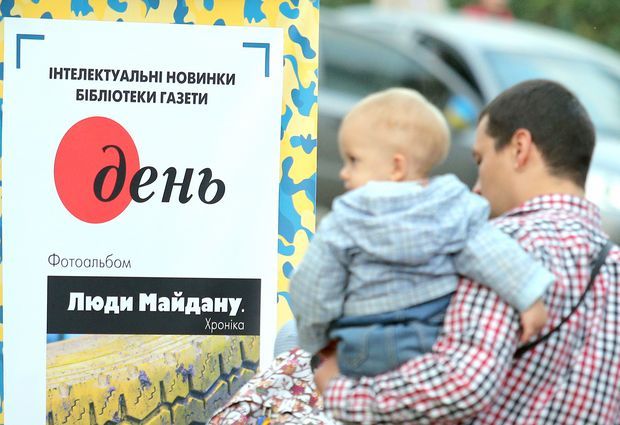“Ukraine and Georgia are always friends”
A charity festival took place on the territory of the National Museum of People’s Architecture and Folkways of Ukraine “Pyrohiv”
During the event “FRIENDS. Ukraine + Georgia” money was raised for the military servicemen wounded in the Donbas and children of forced migrants. About 15 Georgian and Ukrainian teams joined the initiative. Advisor-envoy of the Embassy of Georgia in Ukraine Georgy Zakarashvili noted, “We supported this project, because we take interest in all joint cultural events in Ukraine, and there is a humanitarian component. When Georgia was in a complicated situation, Ukraine helped us, and now we must support Ukraine.”
The participants of the festival held master classes, lectures, a photo exhibit, a charity fair, a lesson of Georgian. People stood in a huge line to the master class on cooking khinkali: the national Georgian dish was cooked, like many years ago, in a big pan on a bonfire. Restaurant director Tamara Makarova, who held the master class, shared, “There are many people near our table; someone in the line has the number 50. However I would like to see more visitors at the festival: because of current events Ukrainians visit such events less.”
At the exhibit of contemporary artists from Tbilisi “Palette of Georgia” landscapes of Donetsk were on display among other things. Curator and art manager Nina Burnevych commented: “In February 2013 artist Avtandil Gurgenidze came to Donetsk and depicted the city as very bright, sunny, blossoming. In April we presented these pictures in the Donbas, they were received well. Georgian artists dream about making exhibits in Ukraine: there are many possibilities for creative work and development here, but they not always have money for this.” Georgian artists so much liked the idea of the festival that artist Misha Berdzenishvili gave one of his works to be sold for charity.
The main event of the festival was a concert with Ukrainian and Georgian songs and dances. When the performers started to sing the anthem of Georgia, all people present rose to their feet. One of the performers of the anthem, a member of the Saperavi duo Tariel Khutsishvili said, “There is saying: Ukraine and Georgia are always friends. We volunteered to perform at the festival, because we support Ukraine in this difficult time, we want somehow ease the life of those who are in a difficult situation. Ordinary Georgians feel the situation in Ukraine as their own burden: we have experienced this twice. The most important thing is not to lose heart, people should support one another.”
Folk band Rozhanytsia performed a Ukrainian folk song of Luhansk region. The band’s leader Inna Kovtun recorded this song during her ethnographic expedition to the Donbas. In peaceful time the ensemble performed in Luhansk oblast and in Donetsk: according to Kovtun, those were the best ones, they were attended by many people. “I don’t believe that people in Luhansk region don’t want to be Ukrainians: they are cheerful, sincere, they speak a mixed dialect of Ukrainian and Russian. Now I am trying to watch news less and believe in better,” Kovtun says.
The organizers of the festival stay in touch with the Main Military Clinic Hospital in Kyiv and a hospital in Irpin. The doctors of these institutions will give a list of medicaments needed by the wounded, and the philanthropists will buy the medications from the list. One of the initiators of the festival, chair of the board of the Blahomai Charity Foundation Tetiana Skryhina said, “This is not the first time we cooperate with medical institutions, although the projects of the foundation are more connected with orphanages. If the number of wounded remains high, we will look for partners and do something together: in such a way more money can be raised.”
Not far from the festival venue, the servicemen who were wounded in the ATO zone organized a picnic. A serviceman of Battalion Donbas shared his impressions, “Those who are fighting don’t understand how such events are held. But these festivals are needed, more truth about the war should be said there: in such a way people will understand that there are people who are fighting, and they need help. On the whole, many people come often, ask how it is in the front: ordinary Ukrainians help us and worry about us. The most insulting thing is that the government does not care.”
Inna Kovtun contemplates, “Festivals are different. Many large-scale events have been cancelled, usually charity festivals are held to raise the money for military servicemen. This is important for me: I will not go to fight with an automatic gun, but at least I can help with my creative work at the concerts.”






